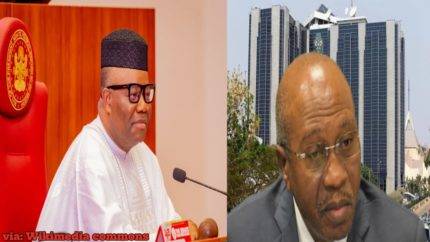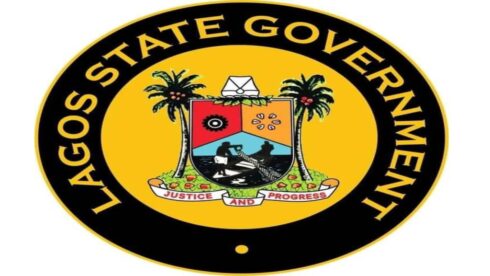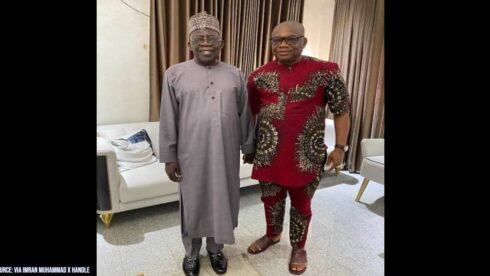Amid growing concerns, the Nigerian Senate has launched a thorough investigation into the N30 trillion Ways and Means loans from the Central Bank of Nigeria (CBN). This proactive move underscores a commitment to transparency and accountability in governmental financial transactions. As the Senate delves into the details, the nation anticipates a renewed sense of trust and integrity in financial governance.
Nigerian Senate Scrutinizes N30 Trillion Ways and Means Loans from CBN
The Nigerian Senate has embarked on a comprehensive examination of the acquisition and utilization of the N30 trillion Ways and Means loans by the Central Bank of Nigeria (CBN) during the tenure of former President Muhammadu Buhari. This proactive measure underscores mounting apprehensions surrounding the transparency and accountability of governmental financial transactions. With concerns intensifying, particularly within the public domain, the Nigerian Senate’s decision reflects a commitment to fostering greater transparency and ensuring responsible stewardship of public funds.
This move by the Nigerian Senate signals a pivotal moment in Nigeria’s financial oversight landscape, as it seeks to address lingering uncertainties surrounding the handling of substantial loans by the CBN. By initiating this scrutiny, the Senate demonstrates its dedication to upholding governmental integrity and fostering public trust in financial institutions. As stakeholders eagerly await the outcome of this investigation, it represents a crucial step towards enhancing accountability within Nigeria’s financial sector and safeguarding the nation’s economic stability.
Unlocking Financial Stability, Understanding the Significance of the Ways and Means Program
In the realm of fiscal management, the Ways and Means program emerges as a pivotal tool wielded by the Central Bank of Nigeria (CBN) to bolster financial stability amidst government budget deficits. Serving as a lifeline during times of economic strain, this program facilitates the provision of vital financial assistance to the government, ensuring the continuity of essential services and projects. Operating as a strategic lending mechanism, the CBN extends temporary financial support to address the government’s immediate monetary needs, thereby mitigating potential disruptions to public expenditure and economic activities.
At its core, the Ways and Means program embodies a symbiotic relationship between the CBN and the government, fostering economic resilience and sustainability. Through this collaborative endeavor, the CBN functions as a reliable financial partner, offering timely assistance to bridge temporary budget shortfalls while upholding fiscal discipline and accountability. By providing the government with access to flexible financing options, the Ways and Means program not only safeguards against liquidity constraints but also reinforces the stability of the financial system, paving the way for sustained economic growth and development.
Impact on Food and Security Challenges
In Senate deliberations, significant scrutiny was directed towards the handling of funds borrowed from the Central Bank of Nigeria (CBN) during the tenure of Godwin Emefiele as governor. The discussions underscored growing concerns over what was perceived as irresponsible utilization of these funds, with particular emphasis on their alleged contribution to exacerbating the nation’s food and security crises. This critical evaluation shed light on the apparent lack of accountability and oversight mechanisms surrounding the allocation and expenditure of these borrowed funds, prompting broader questions about the government’s dedication to effectively tackling pressing national challenges.
The spotlight on the utilization of borrowed funds from the CBN during Emefiele’s leadership tenure not only revealed lapses in financial stewardship but also underscored deeper systemic issues within Nigeria’s governance framework. The absence of robust mechanisms to ensure transparent and responsible handling of public funds has amplified doubts about the government’s capacity to effectively address crucial socio-economic issues. By addressing these concerns and implementing stringent oversight measures, policymakers can work towards restoring public trust and confidence in the management of financial resources, thereby fostering greater accountability and transparency in governance processes.
Nigerian Senate Establishes Special Committee to Investigate N30 Trillion CBN Overdraft
In light of mounting concerns over the utilization of a staggering N30 trillion overdraft from the Central Bank of Nigeria (CBN) by the previous government, the Senate has taken decisive action by forming a special committee dedicated to unraveling the complexities of this financial maneuver. The decision reflects a concerted effort to address public apprehensions and uphold transparency in governance. By initiating this inquiry, the Senate demonstrates its commitment to accountability and ensuring that taxpayer funds are utilized responsibly.
The revelation of intentional withholding of crucial expenditure details from the National Assembly further underscores the gravity of the situation, prompting the urgent need for a thorough investigation. This development not only raises questions about the integrity of past financial practices but also highlights systemic flaws in oversight mechanisms. Through the establishment of the special committee, the Senate aims to shed light on these opaque transactions and restore public trust in governmental financial management processes.
Unveiling a Comprehensive Oversight Initiative
In a significant development poised to reshape fiscal oversight, a freshly constituted ad-hoc committee is on the verge of inauguration today. This committee’s ambit extends beyond a mere examination of the N30 trillion Ways and Means loans; it will also delve into the utilization of the substantial N10 trillion earmarked for the Anchor Borrowers Scheme. Furthermore, the committee’s purview encompasses a meticulous review of a $2.4 billion forex transaction from the broader $7 billion commitment intended for this purpose, in conjunction with an array of intervention programs aimed at catalyzing economic expansion and advancement.
The imminent establishment of this ad-hoc committee heralds a pioneering era of scrutiny into various economic facets crucial to Nigeria’s trajectory. By casting a discerning eye on not only the Ways and Means loans but also the Anchor Borrowers Scheme disbursements and forex transactions, the committee demonstrates an unparalleled commitment to transparency and accountability. Through its exhaustive examination of these interventions aimed at fostering economic growth, the committee endeavors to foster a climate of informed decision-making and prudent resource management, laying a robust foundation for sustainable development and prosperity.
Restoring Trust Through Accountability, The Nigerian Senate’s Investigative Pursuit
The recent announcement by the Senate to initiate an investigation signifies a pivotal step towards upholding the principles of accountability and transparency within Nigeria’s governmental financial structures. This bold move underscores the Senate’s unwavering commitment to scrutinizing the actions of relevant authorities, emphasizing the paramount importance of restoring public faith in the integrity of financial systems. With a resolute focus on holding accountable those responsible for overseeing financial affairs, the Senate aims to cultivate an environment of trust and confidence among Nigerian citizens, fostering a sense of assurance in the governance process.
By spearheading this investigation, the Nigerian Senate is sending a clear message of dedication to ensuring that government officials are held to the highest standards of transparency and accountability. This proactive approach not only serves as a deterrent against potential misconduct but also reinforces the Senate’s role as a guardian of Nigeria’s financial integrity. Through thorough examination and scrutiny, the Nigerian Senate aims to instill public trust in the governance framework, paving the way for a more transparent and accountable financial landscape that promotes the country’s socioeconomic development.
Unveiling the Investigation, Collaborative Efforts for Transparency
As the Nigerian Senate launches its investigation into the acquisition and utilization of the N30 trillion Ways and Means loans, a concerted effort is underway to engage all stakeholders, fostering transparency and cooperation. The Nigerian Senate’s call for the involvement of government agencies, financial institutions, and the general public underscores the gravity of the situation and the commitment to uncovering the truth behind the allocation of these substantial funds. Transparency will serve as the cornerstone of this investigation, ensuring that any lapses or irregularities are brought to light and addressed comprehensively.
The Nigerian Senate’s decision to embark on this investigation marks a pivotal moment in Nigeria’s pursuit of accountability and transparency in financial governance. By undertaking diligent inquiry and oversight, the Senate aims to instill confidence in the government’s management of public funds and reassure citizens of its commitment to upholding integrity. Through this rigorous examination, any discrepancies or mismanagement will be scrutinized, paving the way for enhanced governance practices and fostering greater trust in Nigeria’s economic governance systems.
Table of Contents
Discover more from OGM News NG
Subscribe to get the latest posts sent to your email.













